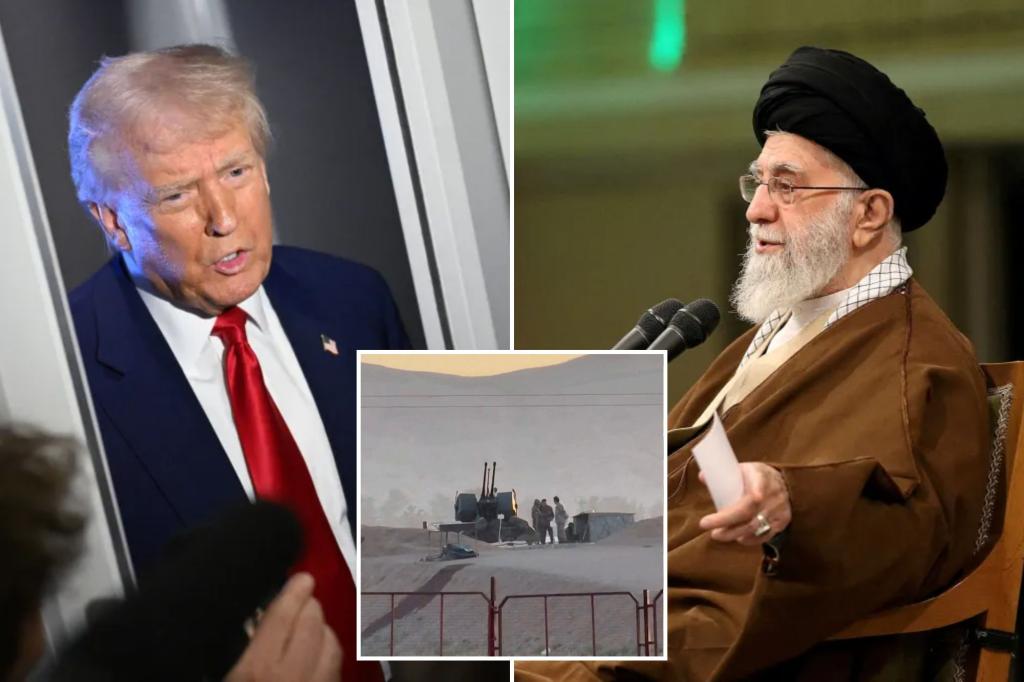Iran Seeks Indirect Dialogue with the US Amid Regional Tensions
In a strategic diplomatic maneuver, Iran has signaled its willingness to engage in indirect talks with the United States while issuing stern warnings to neighboring countries about potential military retaliation. The development, confirmed by Iranian officials this week, highlights Tehran’s dual approach of pursuing diplomacy with Washington while asserting its regional dominance. Analysts suggest this could either de-escalate tensions or trigger new conflicts, depending on international responses.
A Delicate Balancing Act: Diplomacy and Deterrence
Iran’s Foreign Ministry spokesperson Nasser Kanaani stated that Tehran remains “open to communication channels” with the US through intermediaries, particularly regarding the stalled nuclear deal negotiations. However, he emphasized that any dialogue would require “concrete demonstrations of goodwill” from Washington, including the unfreezing of Iranian assets abroad.
Simultaneously, Iran’s Revolutionary Guard Corps (IRGC) commander Hossein Salami warned neighboring states against “harboring hostile elements,” specifically referencing recent alleged Israeli operations in the region. “We will not hesitate to strike at threats, regardless of their location,” Salami declared during a military parade showcasing new ballistic missiles.
The Regional Context: Rising Tensions and Economic Pressures
The diplomatic overture comes amid several critical developments:
- Ongoing protests in Iran over economic conditions and political freedoms
- Increased Israeli operations targeting Iranian nuclear scientists and facilities
- Stalled Vienna nuclear talks since September 2022
- Recent US military buildup in the Persian Gulf
According to the International Crisis Group, Iran’s uranium enrichment has reached 84% purity – just shy of weapons-grade levels – while its oil exports have dropped to 1.2 million barrels per day due to sanctions, down from 2.5 million in 2018.
Expert Perspectives on Iran’s Strategy
Dr. Sanam Vakil, Middle East expert at Chatham House, suggests: “Tehran is playing a multidimensional chess game. They need economic relief from sanctions but can’t appear weak domestically. The military posturing serves both to deter adversaries and satisfy hardline constituencies.”
Former US State Department official Aaron David Miller offers a contrasting view: “This is less about genuine diplomacy and more about buying time. Iran’s nuclear program continues advancing while they test Western resolve through proxy conflicts in Yemen and Syria.”
Potential Pathways Forward
The Biden administration has cautiously welcomed the prospect of renewed dialogue but maintains that “actions speak louder than words.” State Department officials cite three key demands:
- Cessation of uranium enrichment above 60% purity
- Cooperation with IAEA inspectors
- Reduction of arms shipments to regional proxies
Meanwhile, Gulf Cooperation Council (GCC) countries have expressed concerns about being caught in the middle. A Saudi diplomat, speaking anonymously, revealed: “We’re preparing for multiple scenarios, including potential Iranian provocations disguised as responses to Israeli actions.”
Economic Stakes and Global Implications
The economic dimension looms large over these developments. Iran’s inflation rate has soared to 45% annually, with youth unemployment at 27%. The potential unfreezing of $7 billion in South Korean-held assets and renewed oil exports could provide critical relief.
Global energy markets remain sensitive to the situation. Oil prices have fluctuated between $75 and $85 per barrel in recent weeks as traders weigh the possibility of either renewed Iranian exports or regional supply disruptions.
The Road Ahead: Scenarios and Consequences
Several outcomes appear possible in the coming months:
- Breakthrough Scenario: Indirect talks lead to limited sanctions relief and nuclear concessions
- Status Quo: Continued stalemate with periodic flare-ups
- Escalation: Military confrontation either directly or through proxies
The UN Security Council remains divided, with Russia and China likely to block any new sanctions while Western powers push for stricter enforcement of existing measures.
Conclusion: A Pivotal Moment for Middle East Stability
As Iran navigates this delicate diplomatic phase, the international community faces critical decisions. The coming weeks may determine whether the region moves toward de-escalation or renewed confrontation. For policymakers and analysts seeking deeper insights, the Middle East Institute will host a virtual briefing on Iran’s strategic calculus next Tuesday.
The situation underscores how regional dynamics and great power competition continue to intersect in unpredictable ways. With economic pressures mounting and military postures hardening, the window for peaceful resolution may be narrowing – making constructive dialogue all the more urgent.
See more BBC Express News

